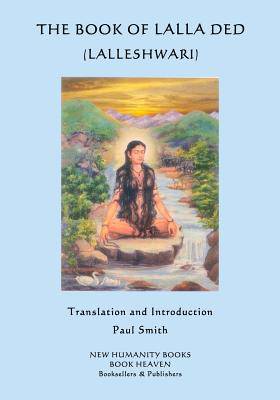
- Retrait gratuit dans votre magasin Club
- 7.000.000 titres dans notre catalogue
- Payer en toute sécurité
- Toujours un magasin près de chez vous
- Retrait gratuit dans votre magasin Club
- 7.000.0000 titres dans notre catalogue
- Payer en toute sécurité
- Toujours un magasin près de chez vous
Description
THE BOOK OF LALLA DED (LALLESHWARI) Translation & Introduction Paul Smith Lalla Ded or Lalleshwari is the famous female poet/saint from Kashmir who lived at exactly the same time as Hafiz of Shiraz (1320-1392). Her vakhs (poems/sayings) are sung even today in Kashmir. She was married at a young age but the marriage was a failure and she walked out at the age of twenty-four. She became a disciple of Siddha Srikanth. It must have taken a lot of courage on her part to walk out of a marriage and to walk around unclothed as she did. She was treated with contempt by some and much reverence by others, seeing her as a saint and eventually as God-realized. Her two hundred vakhs are some of the oldest examples of Kashmiri written. She was a bridge between Hindu mysticism and Sufism. Her poems are more influential today than ever, not only in Kashmir but around the world. Here are 134 inspired poems with correct form and meaning. Introduction on her Life, Times & Poetry and on Sufis & Dervishes: Their Art & Use of Poetry, Selected Bibliography. Large Format Paperback 7" x 10" Illustrated 160 pages. COMMENTS ON PAUL SMITH'S TRANSLATION OF HAFIZ'S 'DIVAN'."It is not a joke... the English version of ALL the ghazals of Hafiz is a great feat and of paramount importance. I am astonished." Dr. Mir Mohammad Taghavi (Dr. of Literature) Tehran. "Superb translations. 99% Hafiz 1% Paul Smith." Ali Akbar Shapurzman, translator into Persian and knower of Hafiz's Divan off by heart."Smith has probably put together the greatest collection of literary facts and history concerning Hafiz." Daniel Ladinsky (Penguin Books author of poems inspired by Hafiz). Paul Smith is a poet, author and translator of many books of Sufi poets of the Persian, Arabic, Urdu, Turkish, Pashtu and other languages, including Hafiz, Sadi, Nizami, Rumi, 'Attar, Sana'i, Jahan, Obeyd Zakani, Nesimi, Kabir, Anvari, Ansari, Jami, Khayyam, Rudaki, Yunus Emre, Shah Latif, Mahsati, Bulleh Shah, Khushal Khan Khattak and many others, as well as poetry, fiction, plays, biographies, children's books and 12 screenplays. New Humanity Books amazon.com/author/smithpa
Spécifications
Parties prenantes
- Auteur(s) :
- Traducteur(s):
- Editeur:
Contenu
- Nombre de pages :
- 190
- Langue:
- Anglais
Caractéristiques
- EAN:
- 9781508458944
- Date de parution :
- 16-02-15
- Format:
- Livre broché
- Format numérique:
- Trade paperback (VS)
- Dimensions :
- 178 mm x 254 mm
- Poids :
- 340 g

Les avis
Nous publions uniquement les avis qui respectent les conditions requises. Consultez nos conditions pour les avis.






